While traditional pets like dogs and cats are beloved for their companionship, many exotic animals can form equally meaningful bonds with their human caretakers.
These unconventional companions often surprise us with their intelligence, affection, and desire for interaction.
However, it’s crucial to understand that exotic pet ownership comes with significant responsibilities, including specialized care requirements, potential legal restrictions, and ethical considerations.
This article explores some of the most interactive exotic pets that genuinely enjoy human companionship, providing insight into their unique qualities while emphasizing the commitment required to meet their complex needs.
Sugar Gliders: Pocket-Sized Companions
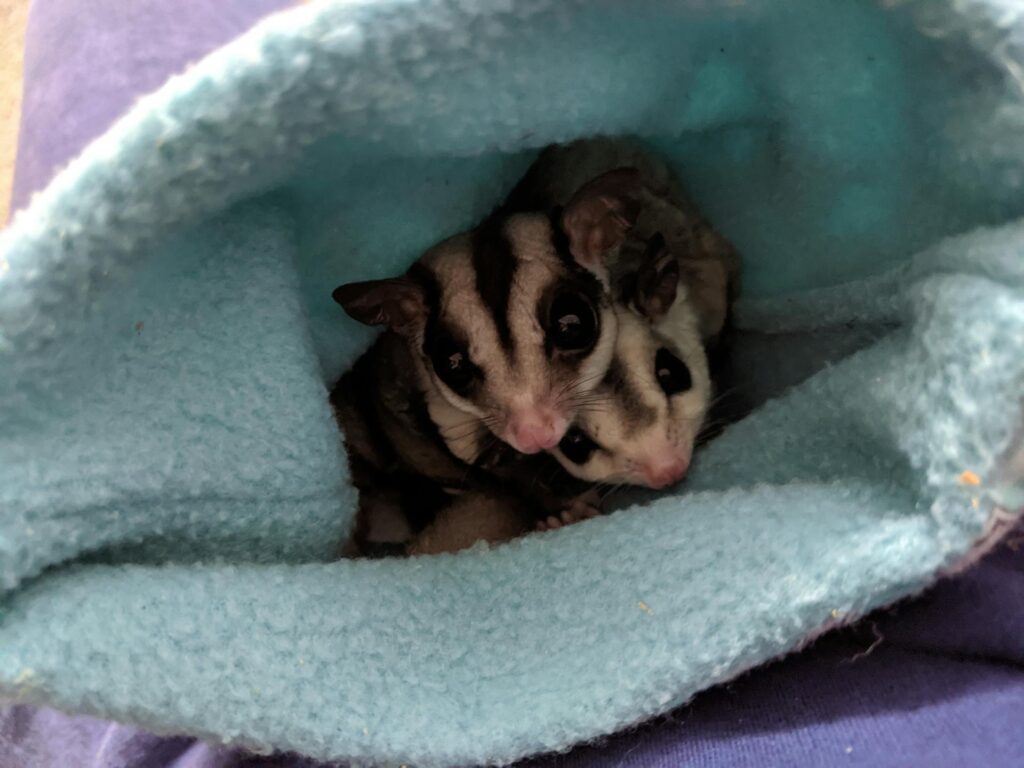
Sugar gliders are small marsupials native to Australia and Indonesia that form intense bonds with their human caretakers when properly socialized.
These nocturnal creatures require extensive handling from a young age, often benefiting from being carried in a special pouch against their owner’s body for several hours daily to establish trust.
Their social nature makes them crave interaction, with many owners reporting their sugar gliders recognize them by scent and will eagerly glide to them when called.
When bonded, they show affection through gentle chirping sounds and by grooming their humans, though this relationship requires patience as it may take several months of consistent handling to develop fully.
Fennec Foxes: Desert-Dwelling Companions
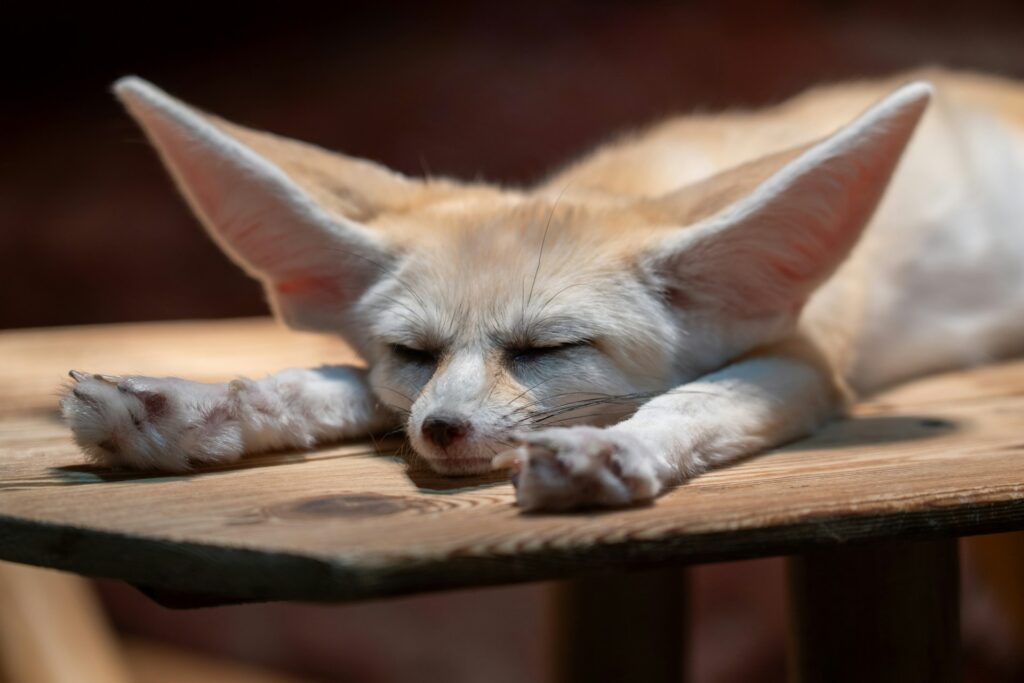
Fennec foxes, with their distinctive oversized ears and petite frames, can develop strong relationships with dedicated owners who understand their specialized needs.
These desert-adapted canids are highly energetic and playful, often engaging in interactive games and displaying dog-like behaviors such as following their owners around the home. Their naturally curious nature means they typically enjoy exploring new environments alongside their human companions.
Unlike many exotic pets, properly socialized fennec foxes frequently seek out physical affection, sometimes curling up on laps or beside their owners for naps after periods of activity.
However, potential owners should be prepared for their high energy levels, specialized diet requirements, and the fact that they retain many wild instincts despite domestication.
Capybaras: Gentle Giants
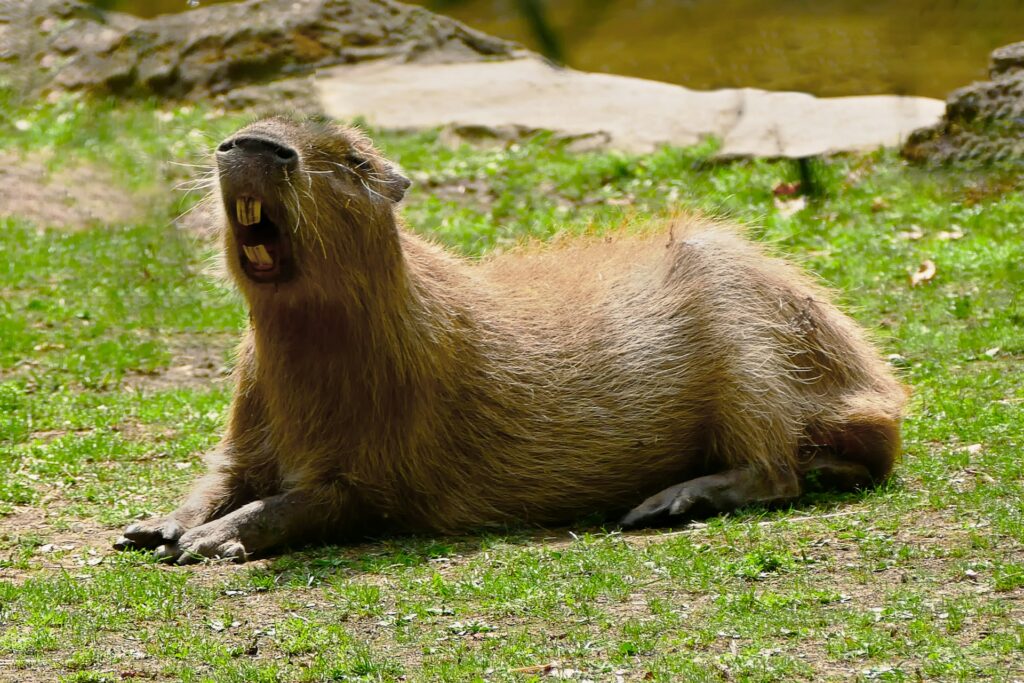
Capybaras, the world’s largest rodents, have gained popularity not only for their docile nature but also for their remarkable capacity for social bonding.
These semi-aquatic mammals are naturally gregarious, living in large family groups in the wild, which translates to their ability to integrate into human households when properly socialized from youth.
Their calm demeanor makes them receptive to gentle handling, with many enjoying being petted and scratched, particularly around their shoulders and back. Capybaras raised by humans often follow their caretakers around like loyal dogs, responding to their names and even coming when called.
Their need for water access and extensive space means they’re best suited for homes with large yards and pools or ponds, making them a significant commitment despite their interactive personalities.
Skunks: Misunderstood Affectionate Pets
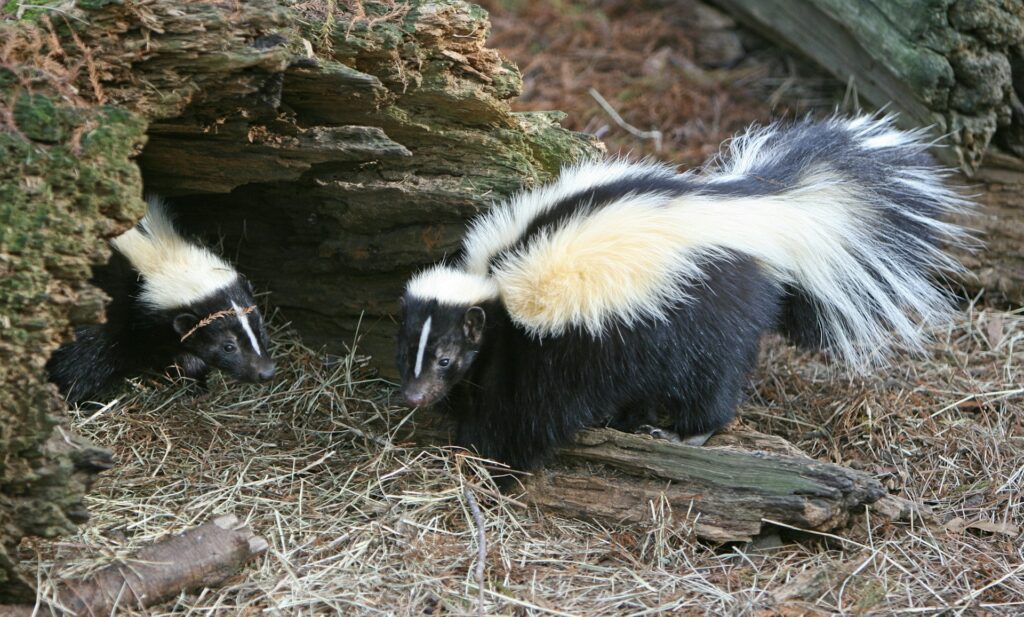
Descented skunks make surprisingly affectionate and interactive exotic pets, often forming strong bonds with their human caregivers. These intelligent animals can be trained to use litter boxes and even respond to basic commands, showing cognitive abilities comparable to cats and dogs.
When raised from kittens (baby skunks), they typically become quite attached to their owners, following them throughout the home and seeking out cuddle sessions, particularly enjoying being carried and held close.
Their naturally curious nature means they engage enthusiastically with puzzle toys and games that challenge their problem-solving abilities, creating opportunities for meaningful interaction with owners.
Legal in only certain states and requiring specialized veterinary care, skunks represent a serious commitment despite their capacity for deep bonding with human companions.
Kinkajous: Rainforest Companions
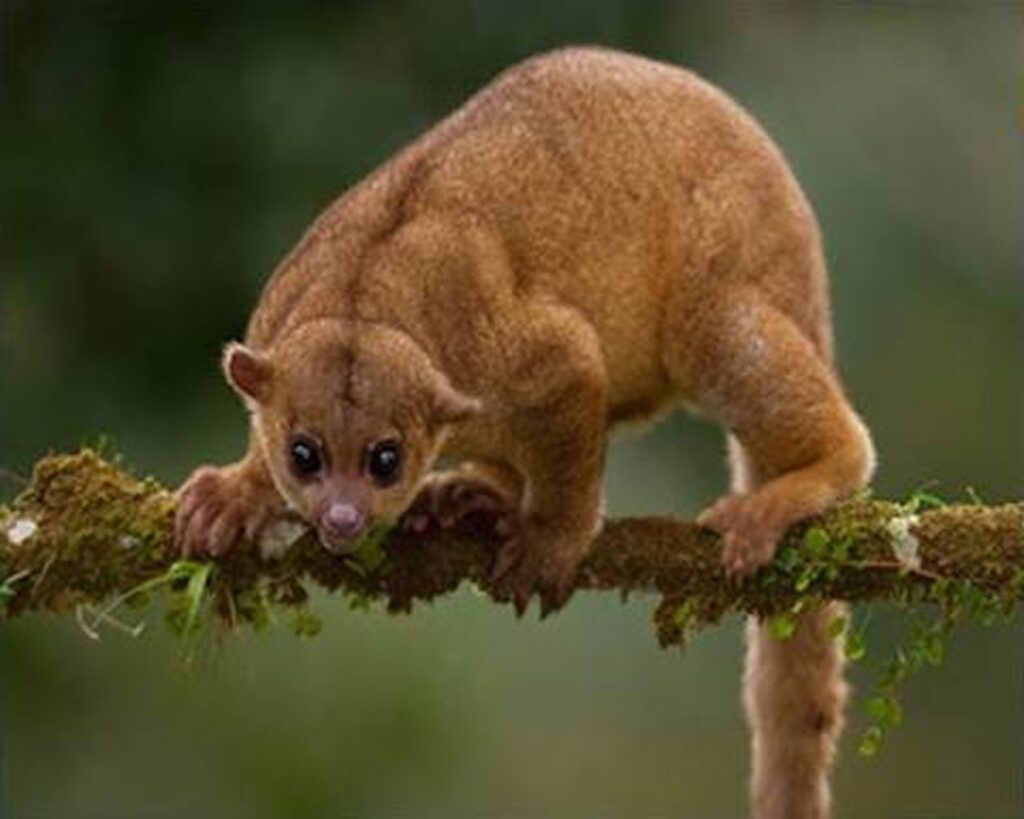
Kinkajous, sometimes called “honey bears” for their fondness for nectar and honey, are arboreal mammals from Central and South American rainforests known for their affectionate nature when properly socialized.
These nocturnal creatures bond deeply with their primary caretakers, often showing preference for specific family members and greeting them with excited vocalizations and physical displays of affection.
Their prehensile tails and dexterous paws make them naturally playful, enjoying interactive toys and games that challenge their nimble abilities and intelligence.
Kinkajous crave social contact, frequently seeking out their humans for grooming sessions, gentle play, and cuddling, especially during their more active evening hours.
Potential owners should understand they require specialized diets rich in fruits, housing with ample climbing opportunities, and patience with their nocturnal lifestyle despite their capacity for meaningful human interaction.
Raccoons: Intelligent Problem Solvers
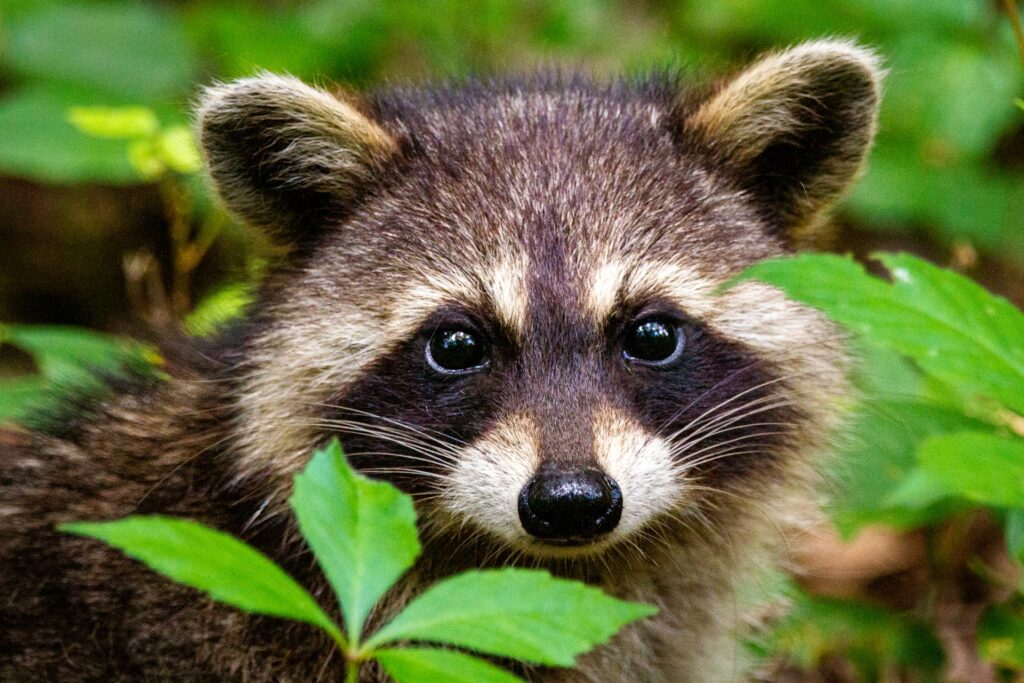
Raccoons possess remarkable intelligence and dexterity that make interactions with them particularly engaging, though their mischievous nature requires an owner with patience and understanding.
When hand-raised from a young age, these clever mammals can form strong attachments to their human caregivers, often showing excitement upon their return home and seeking out physical contact like back scratches and gentle handling.
Their problem-solving abilities are among the highest in the animal kingdom, allowing for complex enrichment activities and training that strengthen the human-animal bond through mutual engagement.
Raccoons have exceptional memories, recognizing their caretakers even after prolonged separations and often developing unique ways of communicating their needs and desires to their familiar humans.
However, potential owners should be aware that raccoons retain their wild instincts regardless of upbringing, can be destructive when bored, and are illegal to keep as pets in many jurisdictions despite their interactive potential.
Marmosets: Tiny Primates with Big Personalities
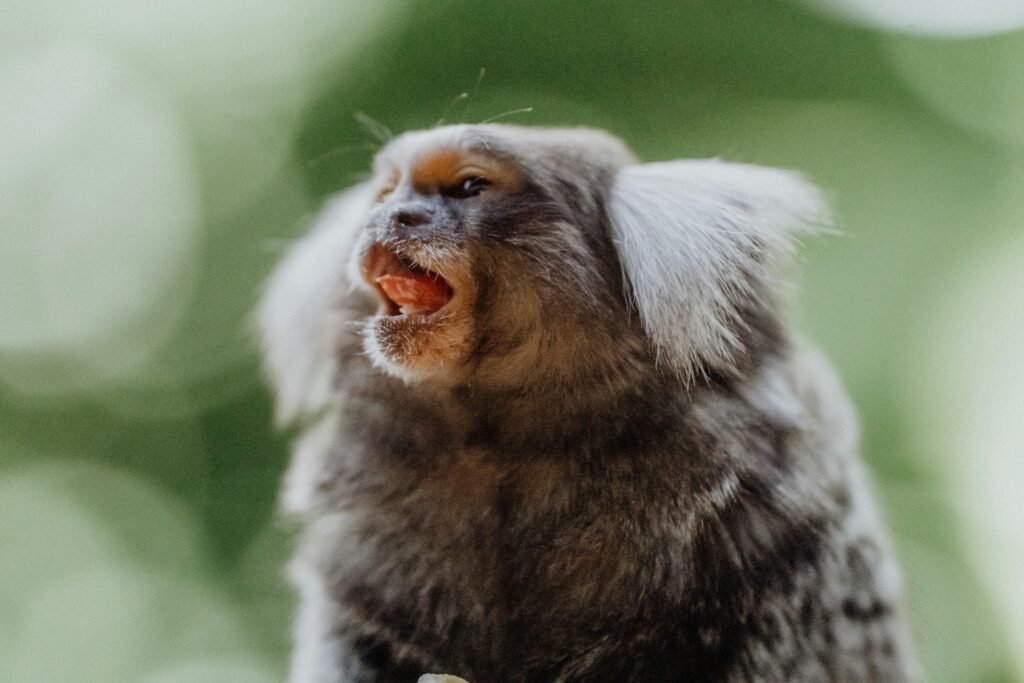
Marmosets are small primates that form complex social bonds with their caretakers, often treating them as members of their family group when properly socialized.
These intelligent creatures communicate through an elaborate system of vocalizations, facial expressions, and body language, allowing for nuanced interactions with humans who learn to understand their unique communication style. They typically enjoy being in close physical proximity to their bonded humans, often perching on shoulders or nestling in shirt pockets for warmth and security.
Due to their highly social nature in the wild, marmosets require extensive daily interaction and engagement, making them suitable only for owners who can dedicate several hours daily to their care and companionship.
Their primate intelligence presents ethical considerations regarding captivity that potential owners must seriously contemplate despite their capacity for forming meaningful human connections.
Flying Squirrels: Bonding Through Trust
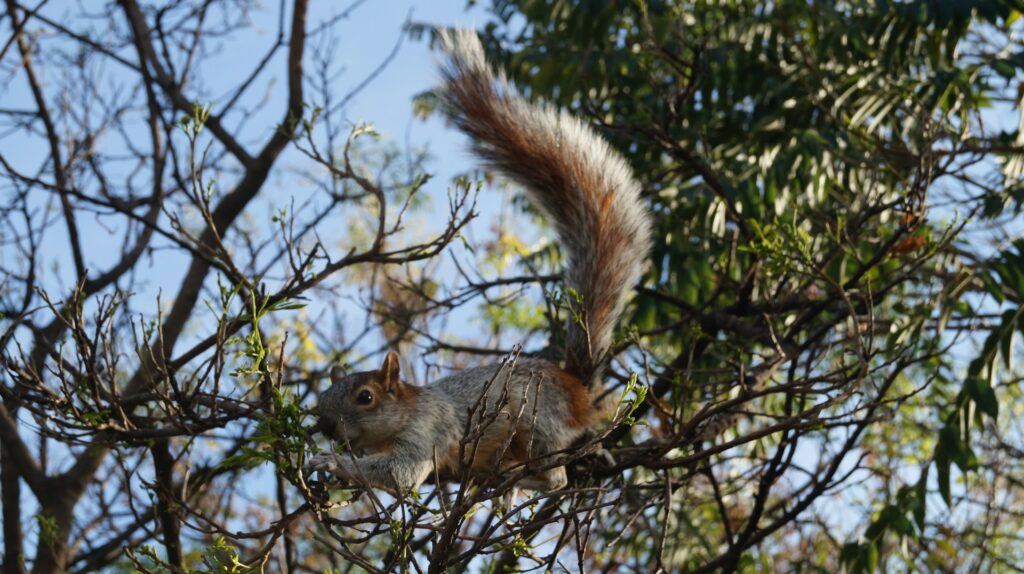
Northern and Southern flying squirrels can develop remarkable bonds with patient owners willing to invest time in socialization. These nocturnal gliders initially require consistent gentle handling to overcome their natural wariness, but once trust is established, they often become exceptionally affectionate companions.
When properly bonded, flying squirrels frequently seek out their humans for comfort and security, often nestling in pockets, sleeves, or specially made bonding pouches worn against the body.
Their natural curiosity leads to playful interactions, with many owners creating safe environments where their flying squirrels can glide freely before returning to them voluntarily.
Though small in size, these animals require significant commitment to their specialized diet, housing requirements, and social needs, making them suitable only for dedicated exotic pet enthusiasts prepared for their primarily evening activity schedule.
Coatimundis: Social Explorers
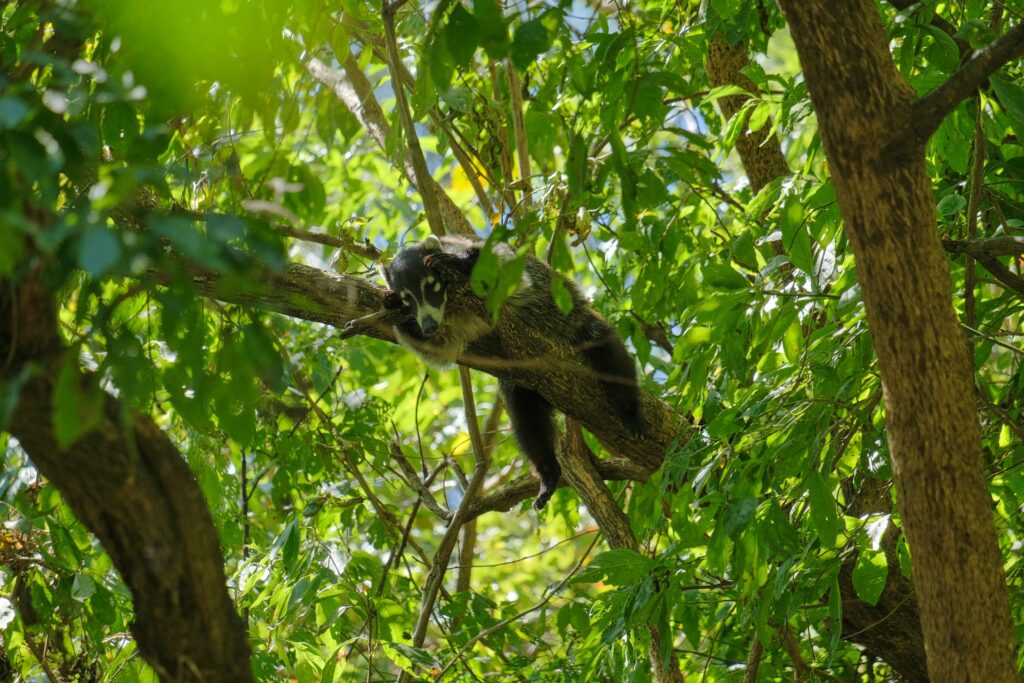
Coatimundis, relatives of raccoons native to Central and South America, are highly social animals that can form meaningful connections with human caretakers when raised from a young age.
Their naturally gregarious nature in the wild, where they live in bands called troops, translates to a desire for consistent interaction and engagement in captivity.
These intelligent mammals use their remarkable dexterous snouts and paws to investigate their environment, making enrichment activities alongside human companions particularly rewarding for both parties.
Coatis often develop personal greetings for their favorite humans, sometimes performing distinctive “dances” or vocalizations when their bonded person enters the room.
Their high energy levels and need for exploration means they thrive with owners who can provide daily interactive play sessions, training activities, and space to satisfy their natural behaviors despite the significant commitment they represent.
Hyacinth Macaws: Lifelong Feathered Friends
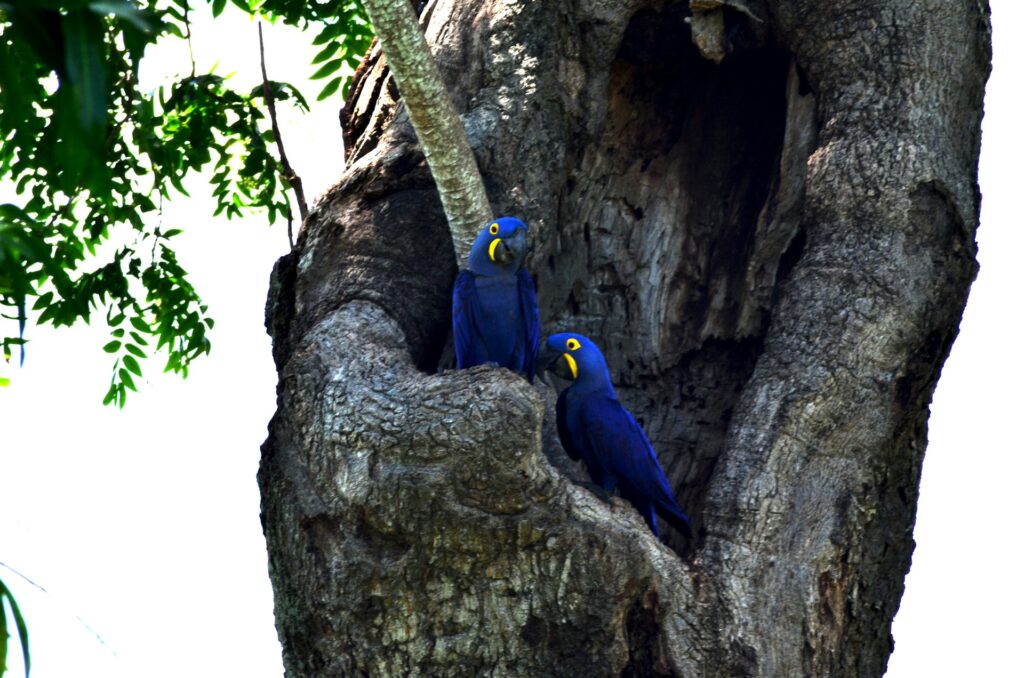
Hyacinth macaws, the largest of all parrots, develop extraordinarily deep bonds with their human caretakers that often last throughout their 50+ year lifespan.
These intelligent birds possess emotional complexity comparable to human toddlers, recognizing their owners’ emotional states and responding with appropriate behaviors such as offering comfort when they perceive sadness.
Their capacity for interaction extends beyond simple mimicry, with many hyacinth macaws learning to engage in games, respond to numerous commands, and even participate in household routines through understanding context rather than mere training.
The depth of connection possible with these magnificent birds is reflected in their desire for physical affection, with bonded macaws often soliciting head scratches, engaging in mutual preening behaviors, and showing visible excitement when reunited with their favorite humans after separations.
Their considerable intelligence, emotional needs, and extreme longevity make hyacinth macaws one of the most serious commitments among interactive exotic pets, requiring owners prepared for a multi-decade relationship with their avian companion.
Binturongs: Bearcat Bonds
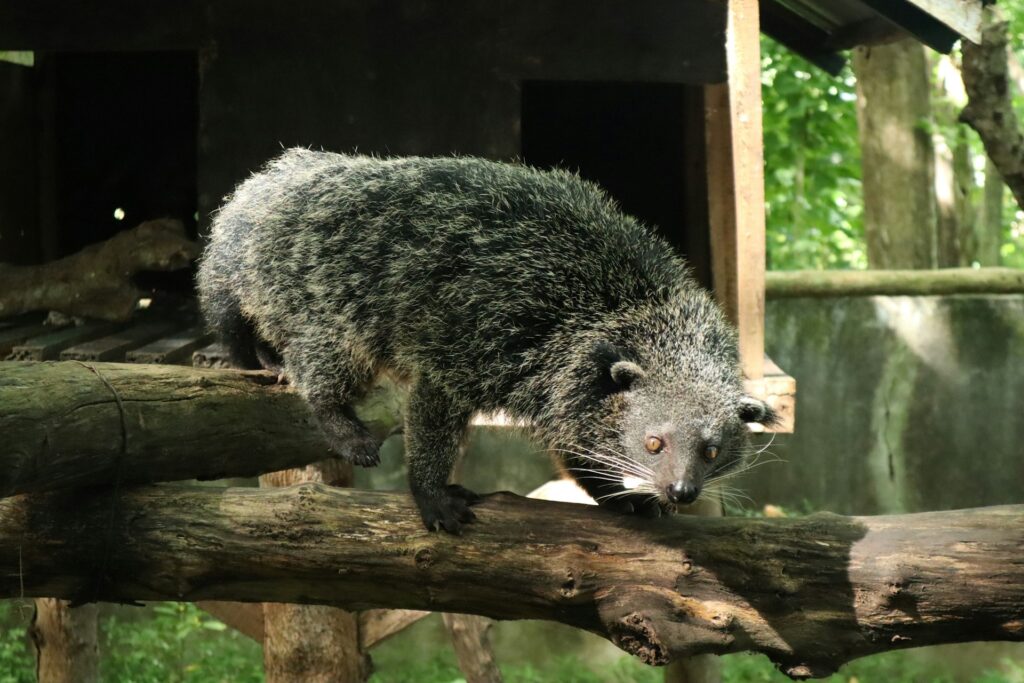
Binturongs, sometimes called “bearcats” despite being related to neither bears nor cats, develop strong attachments to dedicated caretakers who understand their unique needs.
These arboreal mammals from Southeast Asia are known for their distinctive popcorn-like scent and deliberate personalities, typically becoming quite affectionate with their primary humans when hand-raised.
Their naturally calm disposition makes them more receptive to handling than many exotic species, with many binturongs enjoying gentle scratches, particularly around their ears and chin areas.
They communicate their affection through soft chuffing sounds and by seeking proximity to their bonded humans, sometimes even sleeping nearby their caretakers when they feel secure in the relationship.
Requiring spacious enclosures with climbing opportunities, specialized diets, and accommodation for their partial nocturnal nature, binturongs represent a significant commitment despite their capacity for meaningful human connections.
Genets: Elegant Interactive Companions
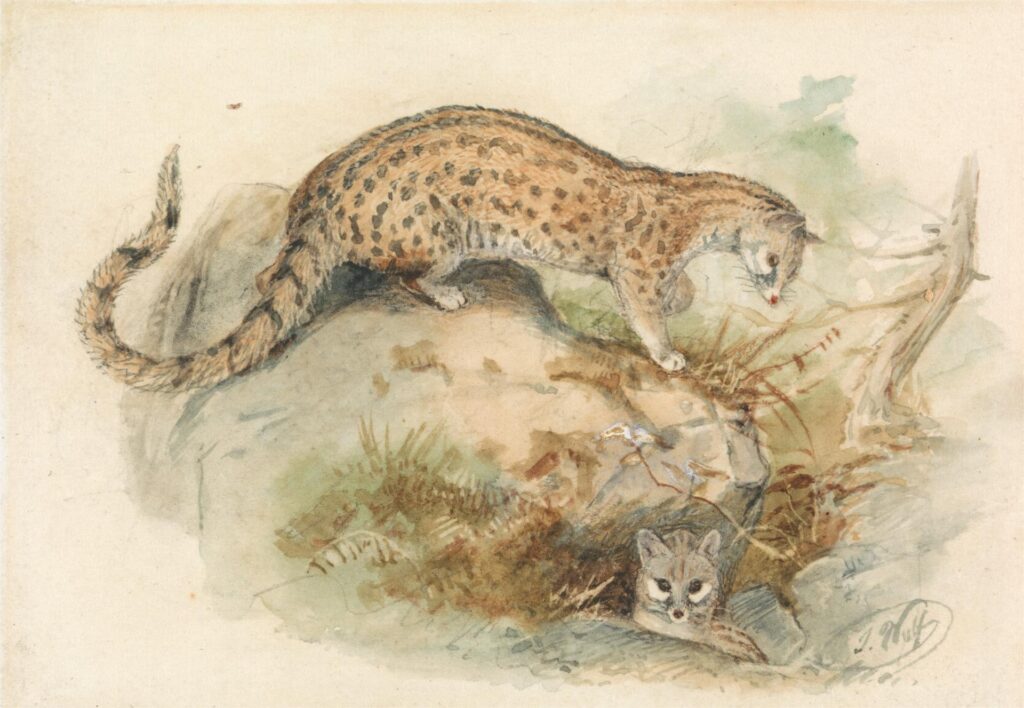
Genets, with their elongated bodies and spotted coats resembling small cats, can develop strong bonds with consistent human handlers despite their naturally independent nature.
These nocturnal mammals from Africa show their affection through subtle behaviors, including purring when content, gentle head-butting similar to domestic cats, and following preferred humans throughout the home when they feel secure.
Many genet owners report their pets recognize them individually, responding differently to familiar caretakers versus strangers and sometimes becoming protective of their bonded humans.
Their playful nature emerges primarily during evening hours, making them ideal for owners who can adapt to their natural schedule for interactive play sessions that satisfy their hunting instincts through appropriate toys and games.
Despite their capacity for bonding, genets retain many wild instincts and require spacious enclosures with vertical components, specialized diets, and owners who respect their need for independence alongside interaction.
Ethical Considerations and Responsible Ownership
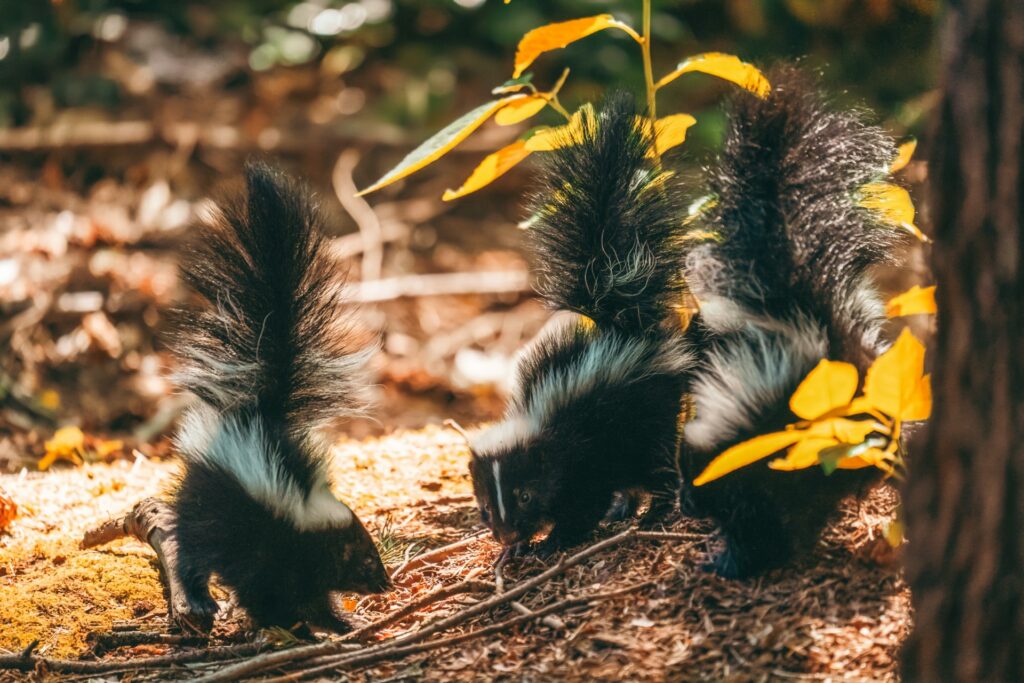
Ethical exotic pet ownership requires thorough research into an animal’s natural behaviors, social needs, and environmental requirements before acquisition.
Prospective owners must honestly assess whether they can provide appropriate space, diet, veterinary care, and mental stimulation for the entire lifespan of the animal, which may extend decades for some species.
Sourcing animals responsibly from reputable breeders who specialize in socialized, captive-bred individuals is essential, as wild-caught specimens often suffer from stress, health issues, and inability to adapt to captivity despite interactive potential.
Understanding and complying with all local, state, and federal regulations regarding exotic pet ownership is non-negotiable, as is having contingency plans for the animal’s care should the owner become unable to continue providing appropriate husbandry.
The most ethical exotic pet owners recognize that even the most interactive species retain wild instincts and behaviors that must be accommodated rather than suppressed, requiring flexibility and adaptation from the human partner in the relationship.
Conclusion
While these exotic animals can form remarkable bonds with dedicated caretakers, they represent significant responsibilities that go far beyond traditional pet ownership.
Each species has evolved complex behaviors and needs that must be understood and accommodated for their physical and psychological wellbeing.
The most successful human-exotic pet relationships develop when owners approach the connection with respect for the animal’s natural instincts while providing appropriate environments for these behaviors to express themselves.
Before pursuing any exotic pet, potential owners should connect with experienced keepers, research extensively, and ensure they can legally and ethically meet all the animal’s needs throughout its entire lifespan.
When these commitments are honored, the unique bond that develops with an interactive exotic pet can be a rewarding and educational experience unlike any other.




